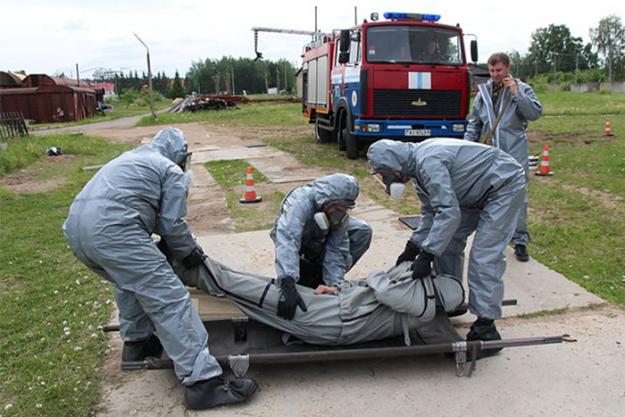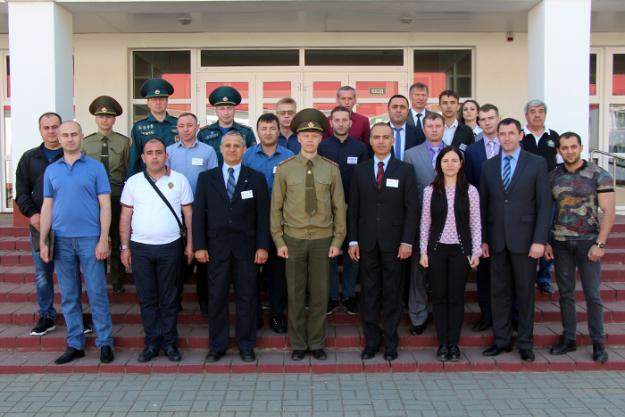
An international group of Russian speaking first responders is better equipped to deal with chemical emergencies after a course at the International Rescue Training Centre
THE HAGUE, Netherlands — 28 May 2018 — An international group of Russian speaking first responders is better equipped to deal with chemical emergencies after a course at the International Rescue Training Centre in Svetlaya Roshcha, Belarus, held from 14 to 23 May.
“It is crucial for all countries to build reliable national capacities to protect their citizens during chemical emergencies. States can support each other in this task by exchanging experiences and best practices,” stated Senior Program Officer from the Assistance and Protection Branch of the Organisation for the Prohibition of Chemical Weapons (OPCW), Mr Shahriar Khateri.
The attendees of the Basic and Advanced Assistance and Protection Course on Chemical Emergency Response obtained theoretical knowledge and practical skills in a range of areas, including detection of chemical warfare agents, protection of personnel, rescue-and-decontamination operations in contaminated areas, and appropriate responses and countermeasures during incidents involving chemical warfare agents or toxic chemicals.

The participants of the training course
The participants also learned what types of assistance the OPCW can offer to its Member States in cases of chemical emergencies.
The course was attended by 15 professionals from the following OPCW Member States: Armenia, Azerbaijan, Belarus, Bulgaria, Georgia, Lebanon, Tajikistan, Ukraine and Uzbekistan.
The OPCW cooperated with the National Authority and the Ministry of Emergency Situations of the Republic of Belarus to organise this event.
The course marked six years of cooperation between the OPCW and Belarus on capacity building in chemical emergency response under Article X of the Chemical Weapons Convention.
Background
As the implementing body for the Chemical Weapons Convention, the OPCW oversees the global endeavour to permanently and verifiably eliminate chemical weapons. Since the Convention’s entry into force in 1997 – and with its 192 States Parties – it is the most successful disarmament treaty eliminating an entire class of weapons of mass destruction.
Over 96% of all chemical weapon stockpiles declared by possessor States have been destroyed under OPCW verification. For its extensive efforts in eliminating chemical weapons, the OPCW received the 2013 Nobel Peace Prize.
